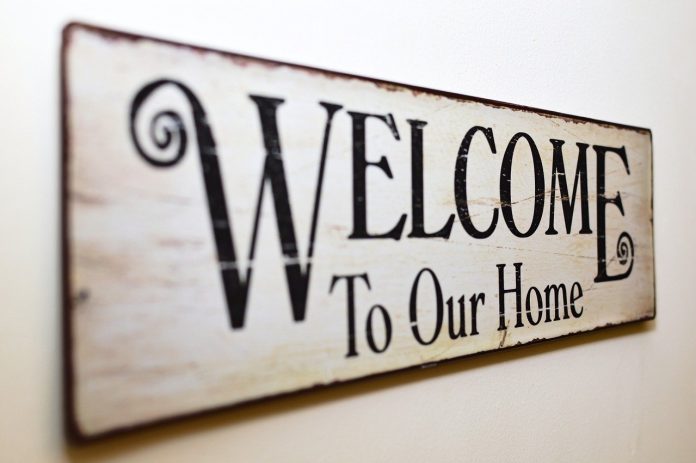So you’ve bought your first home in Manchester? Congratulations! I bet you’re thrilled! I mean, there is no denying that buying your own home is one of the best things you will ever experience in your life. Many consider it as the main milestone that says you’re a certified adult. From now on, you will always have a roof over your head. However, as exciting and as fulfilling it may be, buying and owning your own home can also be daunting and challenging.
By being a homeowner, there are some responsibilities that you will have to take on and some burdens that you will have no choice but to carry. You do not have to worry, though, as the good things will definitely outweigh the bad.
However, to help make your journey as a homeowner easier and much smoother, here are some tips you may want to take note of.
The Basics
From plumbing to home maintenance, you will have to be ready for almost anything. The following are the most basic how-tos and what-to-dos as a homeowner.
-
Know The Location Of Your Water Main and Your Circuit Breaker
First things first, know the location of your water supply switch, as well as your circuit breaker. Having access to this and knowing how both works are the be-all and end-all of having your own home.
Most emergencies will require you to access one or both switches, as it will cut off the water supply and the power supply to your home, respectively. Any “how-to” guide will also tell you to begin by turning one or the other off.
So, be sure to know which both are, as you may just find yourself needing to access it one day.
-
Always Keep Your Plumbing System Checked and Well-Maintained
Plumbing systems are one of the most complex and most crucial parts of a home. It runs throughout the property, underneath the floorboards and beneath the walls. As any plumbing mishap can result in more significant structural damage, as well as health implications if left unaddressed or undetected, you will want to make sure that:
- There is no corrosion in the exposed pipes in your property
- There are no issues in your valves and pipelines caused by sediment buildup
- Your water burner burners and vent are clear of any buildups and safe for use
- Your sink, shower, and tub are free of clogs or blockages
- Your toilet is flushing and refilling properly
Moreover, by letting your shower, faucet, toilet or pipes leak continuously, you could be wasting at least 3,000 gallons of water annually. That’s more than enough to fill up a small above-ground swimming pool! Just imagine how much money is literally going down the drain!
That is why it is incredibly vital for every homeowner to have your plumbing system regularly checked and maintained. To make sure everything is always in perfect working condition, you may look up DIY guides and videos online. Or better yet, call the local plumbers in Manchester. This way, you don’t have to get your hands dirty.
-
Pay Attention To Your Energy and Water Consumption
Knowing how much water and energy you consume can be helpful for two reasons. First, it allows you to get a better grasp of how much you are spending on your bills, thus helping you control your usage, and therefore, your spending.
A spike in your meter readings without reasonable cause may also be indicative of a problem in your plumbing system or any of your appliances. By knowing how much you consume regularly, you may be able to prevent massive damage to your home and your bank account!
-
Check For Structural or Foundational Damages
Foundation repairs can cost you thousands of pounds at the very least. That is why you must know how to find foundation problems early on, as it could prevent a catastrophe.
Foundational issues often manifest themselves in cracks in your walls, floors, and ceilings. However, subtler signs could come in the form of jammed doors and windows, saggy floors and ceilings, development of mould, musty smells in the basement, gaps between exterior windows and walls, bowed walls, a shift in your chimney’s position, and nails popping out of dry walls, among many others.
Finances
Now that you have your own home, you also take on the responsibility of paying your fees and utility bills. This, unfortunately, is not as easy as it seems.
-
Always Set Aside Money For Utilities First
One way to make sure that all your bills are paid when they have to be paid is by setting aside the amount for utilities before prioritising any other kind of expenditure. After all, you wouldn’t want to be the person who has a 60-inch TV, but no electricity to power it with.
-
Set Up An Emergency Fund
While every homeowner needs to take preventive measures around the house, it is unavoidable for unexpected problems to arise. As such issues are typically costly, it would be helpful for you to have a safety net or fund that is solely dedicated for such emergencies.
-
Getting a Homeowner’s Insurance
A good homeowner’s insurance policy can help you a lot in the event of actual disasters that would need you to file a claim. Be sure to find one that would provide you with coverage and financial protection from structural damage due to natural disasters, among many other things.
Do not settle for the first insurance company that comes your way. Having good homeowners insurance will provide you with much-needed peace of mind.
Home Aesthetic
It is important for you to decorate in a way that makes you feel comfortable and happy, and makes your home look good. To help you achieve this, here are some tips you may find useful.
-
Colour Palettes
Getting your home to look coherent is already a difficult task all on its own. One quick and easy way of doing this is by finding a colour palette for your home. Here are some tips for choosing the right colour palette:
- Decide on what kind of colour scheme you would want to follow. Are you going for monochromatic, analogous, contrasting, or complementary?
- Do not decide on the colour of your walls first. Start with much harder to find items like rugs, appliances, furniture, and other decors.
- Make sure to assign room colours systematically. Take note of which rooms can be seen from the other, and how coherent you want your rooms to be. Do you want the whole house to follow one colour scheme or would you rather have different schemes in different rooms?
-
Choosing The Right Furniture and Appliances
Aside from the colour palette of your home, it is important to take the size and layout of your home, your lifestyle, and the functionality and necessity of the furniture you are eyeing.
Pro Tip: Start by choosing the anchor pieces like the couch, dining table, and beds. Work your way through until you get to the smallest furniture.
Adapting To Your Neighbourhood
Doing so will help you feel more comfortable and relaxed in your new neighbourhood. You can get better acclimated to this new part of your life by doing the following:
-
Befriend Your Neighbours
Introduce yourself and make friends with the people who live around you. By doing so, you will learn about your neighbourhood, find reliable recommendations, and even borrow tools and utilities when needed.
It will also make it easier to settle any issues or disputes that normally arise between a neighbourhood of homeowners.
The locals of Manchester are known for being outgoing in nature, so you wouldn’t have to worry about making new acquaintances. Just be yourself and make conversation. You’ll be surprised at how easy it is to talk to anyone!
-
Get To Know Your Area
Get to know what’s going on in your area. Ask locals for recommendations on markets, pubs, restaurants, doctors, public transportation, and many more. The city of Manchester is a melting pot for different languages, cultures, and people, and this is reflected in its culture and day-to-day lifestyle. You’ll definitely be surprised at what you can find in the city!







